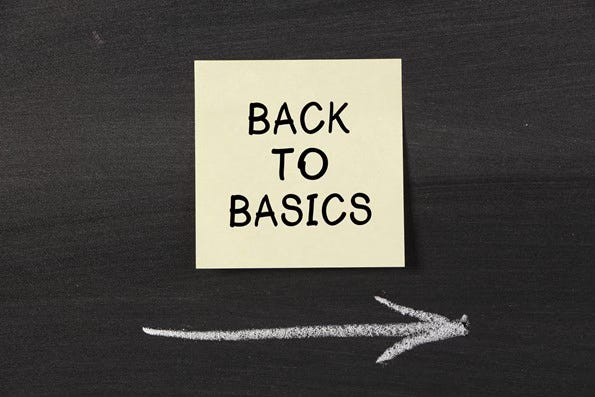In previous posts (linked below) we have discussed numbers one through three, and five in the list below. I have approached this topic in that order to prioritize what I think is most important when looking to create a change to your body composition. Today’s topics will be numbers four and six.
2. Total daily calories and energy balance
3. Progressive training program built around your ability to be consistent
4. Sleep duration and quality
5. Nutrition quality including hydration (variables not including numbers one and two above)
6. Stress management
Sleep matters a great deal. The physiological benefits that come from sleep are not up for debate at this point and have been well studied. This will not be an exhaustive list, but below are a few of the things that getting enough sleep can do for us:
· Cell repair (we are made up of cells and they need maintenance)
· Immune function benefits
· Lowers the risk of obesity, weight gain, and type 2 diabetes
· Appetite regulation
· Due to the tissue repair benefits of sleep, there is an associated increase in athletic performance, energy levels, strength, and endurance
My addition to this list that you won’t find in a google search is that sleep allows us to reset our minds. Many times, if I am anxious or stressed about something, a good night’s sleep helps me manage those feelings and emotions. I am fortunate enough to be able to say that every day I will end up in my bed no matter how bad or busy a day was. This sense of safety, security, and routine is an underrated benefit that the habit of sleep can give us. This ties directly into stress management, which is why I chose to write about these two topics together.
Long story short, on average adults should get between seven to nine hours of sleep. Will it happen every night? Of course not. If you can make this a priority, you will be supporting all your hard work in the gym, and kitchen. Your body needs a chance to recover, or it will not be able to support the changes that you are trying to make over a long period of time. My number one strategy for sleeping better at night if you are struggling, is to physically exert yourself during the day. If you work a job or have a lifestyle that, has you sitting down for the majority of the time you are awake (the majority of people) you need to work to create an environment that leads to greater physical exertion. Work hard in the gym, get your steps during the day, and have more active standing time as a mandatory part of your day and I almost guarantee your sleep will improve.
Stress is a complex topic. I am not the most qualified person to give advice on what it takes to reduce your stress load, but I can share my view. We tend to think of stress as a negative, however this is not the way I see it. My view is that the stress response is mostly good and without it we would not have survived and evolved. The main problem arises when we lack the ability to recover from stressors. Stressors cause a response. The physiological response is the release of adrenaline and cortisol. These hormones allow us to respond and act when we are threatened. To recover from this physiological event, the hormones epinephrine and glucagon are released to bring us back to balance. The problem with modern humans is that we often have a rise in cortisol and adrenaline due to work, relationships, social, or other non-physical threats and are rarely threatened physically. This happens all day for a lot of us and can lead to chronic stress and therefore chronic exposure to these stress response hormones. This chronic exposure is associated with heart disease, depression, digestive problems, sleep disturbance, anxiety, weight gain, and memory loss.
The book referenced in the link from the previous sentence is called “Why Zebras Don’t Get Ulcers” by Robert Sapolsky. The simplified premise of the book is that stress affects us the same way it impacts wild animals. In the wild, the only real stress for animals is surviving. When they are being chased by a predator they must escape, and to do so they experience an elevated stress response. If they escape, they are observed to recover incredibly quickly and go right back to grazing or sleeping within minutes of these life-threatening events. This would be an acute stress response. Many modern-day humans are not threatened physically and are highly stressed. This is not a great mix and contributes to all sorts of problems as mentioned above. We need to be able to deal with our stressors and bring ourselves back to equilibrium. If we sleep well, eat well, train effectively, have structure to our day, have meaningful social relationships, and understand how to process our own thoughts we have a shot at creating a balance in our lives and using stress to our advantage rather than being chronically exposed to it.
My hopes are that it has become clear after reading my thoughts on stress and sleep that, if you take care of numbers one through three on my list above, numbers four through six will all but take care of themselves. Focus on the big-ticket items before moving onto the minutia.
-Matt


